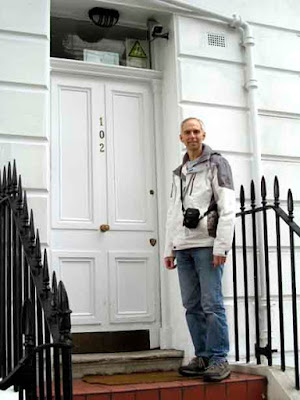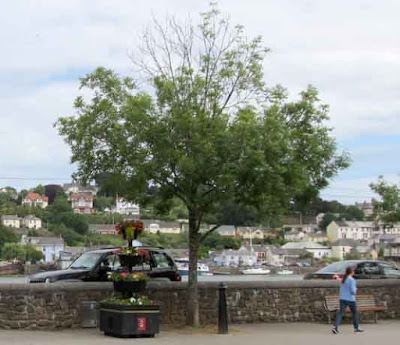 |
| 102 Oakley Street, Chelsea, London, a residence of E. F. Benson. |
One thing I hadn't realized, until I read The Babe, was how diverse E. F. Benson's reading was. As the Babe spends his evenings out and about in London with his friends, he extolls the virtues of "The Yellow Book", a magazine which rocked contemporary Victorian cultural values. While many of the stories it published were from conservative writers, including H. G. Wells, it nonetheless had a salacious reputation. It is also linked with Oscar Wilde, who suggests that the magazine is a major corrupting influence on the title character in his novel The Picture of Dorian Grey.
Once the Babe returns to Cambridge, he throws himself into studying for his tripos. But he takes out time to read Ravenshoe by Henry Kingsley, the brother of Charles Kingsley. Despite his interest in progressive contemporary literature, he apparently adores Henry Kingsley's novel, as E. F. Benson says he already knows it by heart. Meanwhile, his study partner Reggie picks up Gerald Eversley's Friendship, a novel by James E. C. Welldon, who like Charles Kingsley and E. F. Benson's father, rose to prominence in the Church of England. But while Reggie finds his novel depressing, the Babe tells him what he loves about this study of boys boarding at a school named St. Anselms. When Reggie asks for a synopsis, the Babe readily gives it to him.
When preparing for our vacation in Devon last year, I thought I was out of my mind to plan a trip around a forgotten author like Charles Kingsley. At the time, he seemed to bear no correlation between E. F. Benson, or any of the other English novelists which I knew and loved. But having read Charles Kingsley's novels Yeast, A Problem, and Westward Ho!, as well as Wilde's The Picture of Dorian Grey, it's interesting to read The Babe, and realize how interconnected all these English authors are. While many better remembered authors like Agatha Christie focusing solely upon plot and characters, less remembered authors like Benson and Kingsley tell you so much about the times in which they lived, and the stories that mattered to them.
Often, I think that my reading is too diverse, that I should confine myself to one genre, such as Science Fiction and Fantasy. Then I read E. F. Benson, and I realize that his tastes were as wide as mine. No wonder I enjoy reading him so much.
Dragon Dave

























